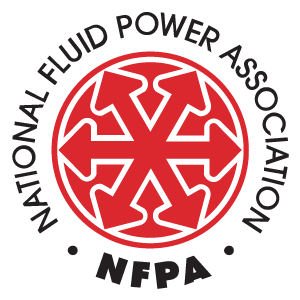As part of an effort to bring more information about the regulatory and legal environment facing American manufacturers, NFPA is monitoring the newsfeed of the National Association of Manufacturers (NAM) and will be bringing important updates like this to the attention of NFPA members.
The NAM and the American Chemistry Council (ACC) yesterday (June 10) filed a petition challenging the Environmental Protection Agency’s first-ever national drinking water standard limiting the presence of six types of per- and polyfluoroalkyl substances, or PFAS.
What’s going on: The organizations are seeking to overturn the final rule—issued in April by the EPA—in the D.C. Circuit Court of Appeals on the grounds that it exceeds the agency’s authority under the Safe Drinking Water Act of 1974 and “is arbitrary, capricious and an abuse of discretion,” in violation of the Administrative Procedure Act.
Under the rule, PFAS in municipal water systems are limited to near-zero levels. Systems nationwide will have three years to monitor for the chemicals and two subsequent years to install technology to reduce the compounds’ levels in the water.
The water systems will (and, in fact, have already begun to) sue manufacturers to cover their costs. Meanwhile, plaintiffs’ attorneys are using the standard in product liability and greenwashing suits against manufacturers.
PFAS are a diverse group of chemicals that have been used widely for decades due to their unique ability to douse fires and resist grease, stains and corrosion. Today they’re a key component in a wide range of critical products, from semiconductors, to the components of the electrical grid, to renewable-energy production equipment.
Why it’s problematic: The final regulation of PFAS “is wholly infeasible and threatens these vital substances’ continued application in manufacturing processes,” said NAM Chief Legal Officer Linda Kelly, adding that the agency’s rulemaking is based “on a deeply flawed cost-benefit analysis” and fails to follow Safe Drinking Water Act procedure and other statutory requirements.
“In many instances, there is no viable alternative for these chemicals, and companies may be forced to change plans dramatically” to follow the new rule, NAM Managing Vice President of Policy Chris Netram said in April.
“In everyday life, including emergency situations like a fire or operating room circumstance, there’s a real reliance on these products—it’s not just about job losses and costs but fundamental decisions that have widespread ramifications,” Netram added recently.
What should be done: The rule should be vacated as soon as possible, the NAM and the ACC told the court.
Recent Posts
Update to Regional Demand Estimates Report Now Available
The U.S. Fluid Power Regional Demand Estimates Report has been updated with 2023 estimates and is now available for download. This Excel-based report is prepared for NFPA by Oxford Economics and profiles the geographic distribution of fluid power products to end-use industries by state, including fluid power sales dollars, fluid power sales percentage, and number of…
Hear from an NCAT Student Engaged in NFPA Workforce Programs
We’re excited to share a new testimonial video from David Castro Lastor, a junior mechanical engineering student at North Carolina Agricultural and Technical State University and president of the university’s Fluid Power Club. In his video, David shares how participating in NFPA programs has shaped his academic and personal growth. Through his leadership in the…
New Episode of Fluid Power Forum: Advanced Modeling Techniques and Performance Comparisons of Electrohydraulic Systems
Today, our guest is Bruno Dupuis. Bruno is a Corporate Accounts Manager at Famic Technologies Inc., the company behind the development of Automation Studio™, a circuit design and simulation software for fluid power, electrical, robotics, process control and automation projects. He presented at NFPA’s Hydraulics Conference co-located at the 2024 iVT EXPO back in August.…



